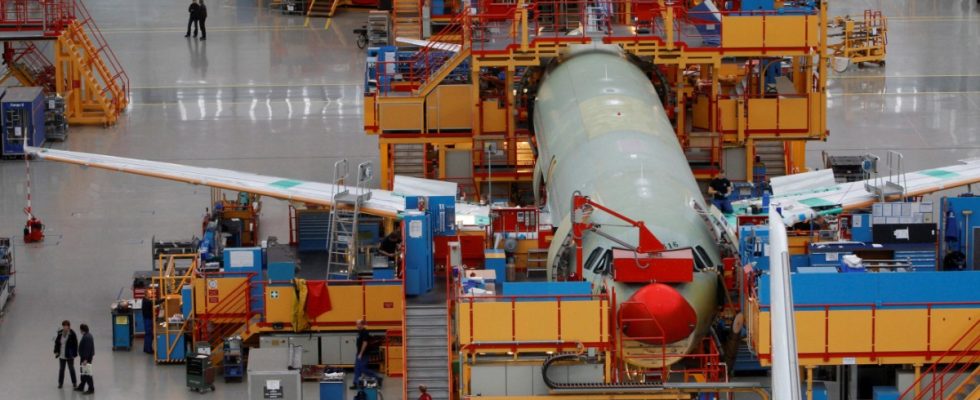October 28, 1972 has a special meaning in Christian Scherer’s life. That day, the then ten-year-old stood on the roof terrace of the old Toulouse airport terminal and waited for the Airbus prototype A300 took off on its first flight. However, it was much more important to him and his mother, who was standing next to him, that the plane would land safely again after the first tests. Father Günter was on board as a flight engineer.
September 26, 2023 was another special day for Scherer, whose life is more closely linked to Airbus than almost any other employee, not only professionally. A good 50 years after the first flight, the Airbus board of directors nominated the 61-year-old as head of the Airbus civil aircraft division, by far the most important unit in the group. Scherer succeeds his boss Guillaume Faury, who has previously held the position as head of the Airbus Group. Airbus justified the move by saying that Faury should concentrate more on its strategic tasks in the future and also spend more time on other business areas such as defense, space and helicopters.
Christian Scherer, the new head of the civil aircraft division at Airbus, has a difficult task ahead of him.
(Photo: BRIAN SNYDER/REUTERS)
Airbus, like the entire aviation industry, is facing a major transformation to make it more sustainable. The industry wants to be climate-neutral by 2050, but switching to alternative drives is technologically much more difficult than with cars, for example. Airbus has committed to bringing a small hydrogen aircraft onto the market in 2035. But given the around 40,000 jets that will be flying worldwide by then, hydrogen will hardly make a difference for decades to come. At the same time, Airbus relies on synthetic fuel, which the aircraft currently built can use, but which is not available in nearly sufficient quantities. Faury also recently announced that Airbus would be the successor to the short- and medium-haul jets in the second half of the 2030s A320neo-Row plan.
The sales area, which Scherer was previously responsible for, had long been the least of Airbus’ problems. The order backlog now stands at 7,500 aircraft. This means that the manufacturer will be sold out by the end of the decade, even if the ambitious plans to expand production actually work. Otherwise, customers will have to wait even longer for the jets. The day before the announcement, Scherer was able to shine again in his old role: Air France-KLM announced 50 long-haul jets of the type A350 want to buy, with options for another 40 machines. A pretty important success for the group, because unlike the… A320neoseries, Boeing is currently ahead in terms of orders for wide-body jets.
Scherer has to massively increase production and modernize it at the same time
The new job will be a mammoth task. Airbus has to manage the balancing act of massively increasing production and modernizing it at the same time. There are major risks if new processes go wrong. Suppliers also continue to cause considerable problems, most recently the engine manufacturer Pratt & Whitney, which will have to produce 3,000 engines in the coming years due to a material defect that initially went unnoticed in production A320neo-Series must be checked and repaired. In the first half of 2024, around half of all pratt vehicles are expected to be in operation A320neo on the ground, that’s around 600 aircraft. And even before the latest fiasco, Pratt and partners (including MTU Aero Engines) were unable to deliver nearly as many engines as customers needed.
Scherer will therefore have to continue to exploit its good relationships with customers in order to master a complicated situation. He has enough experience in this. As early as 2003, he became deputy to long-time sales boss John Leahy, who is considered one of the fathers of Airbus’ success. Scherer later briefly moved to the defense division before becoming the group’s head of strategy and briefly heading the regional aircraft joint venture ATR. When Leahy retired in 2017 after decades, Scherer was considered his safe successor. But former Rolls-Royce manager Eric Schulz was preferred to him, but he had to leave after just one year. Scherer moved up.
He is now scheduled to take up his new position on January 1st. This involves extensive preparatory work. It must be clarified which units within Airbus will transfer to the new unit and which should remain as a higher-level corporate function. Scherer is also expected to put together a new team to lead Airbus Commercial Aircraft as divisional director.

